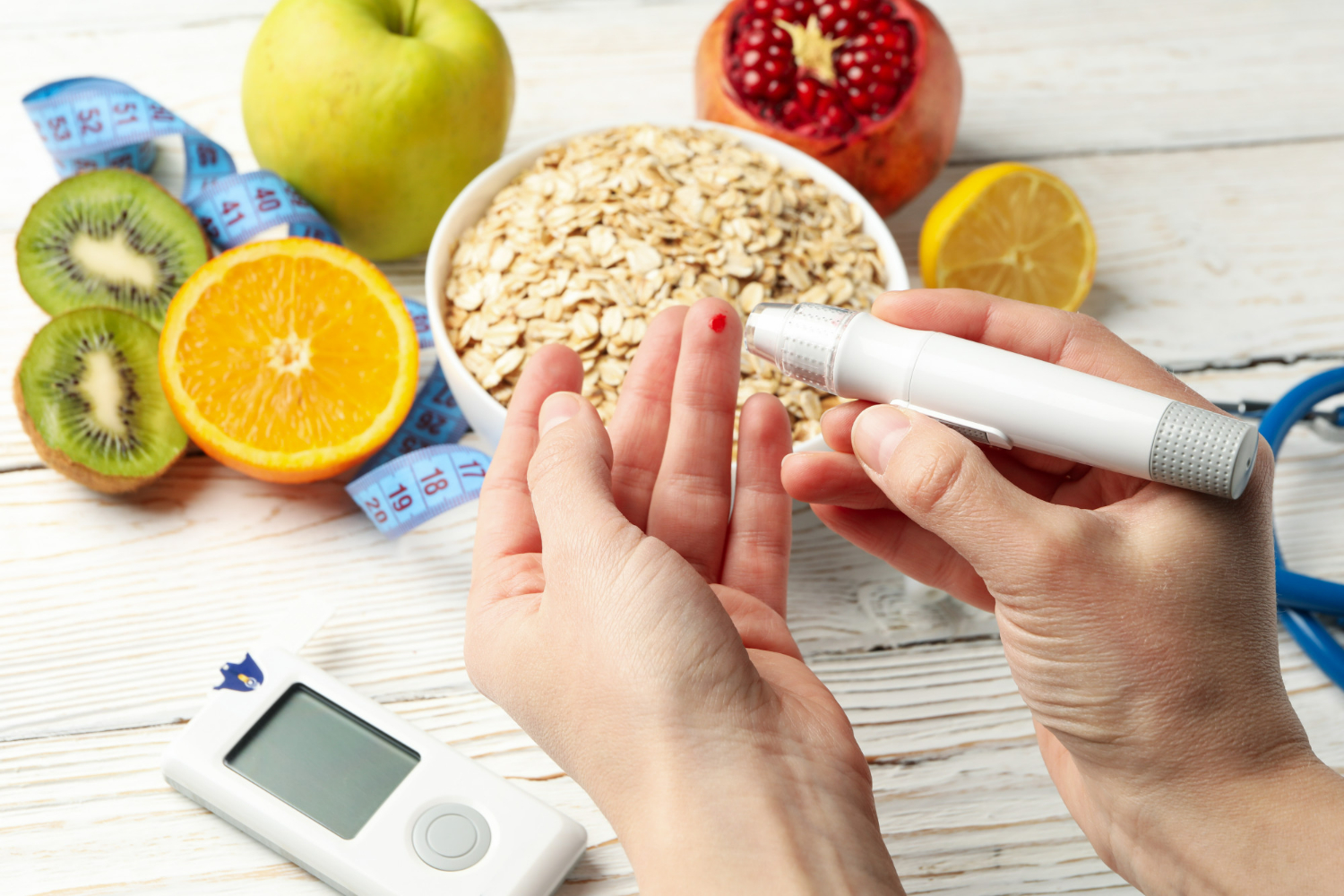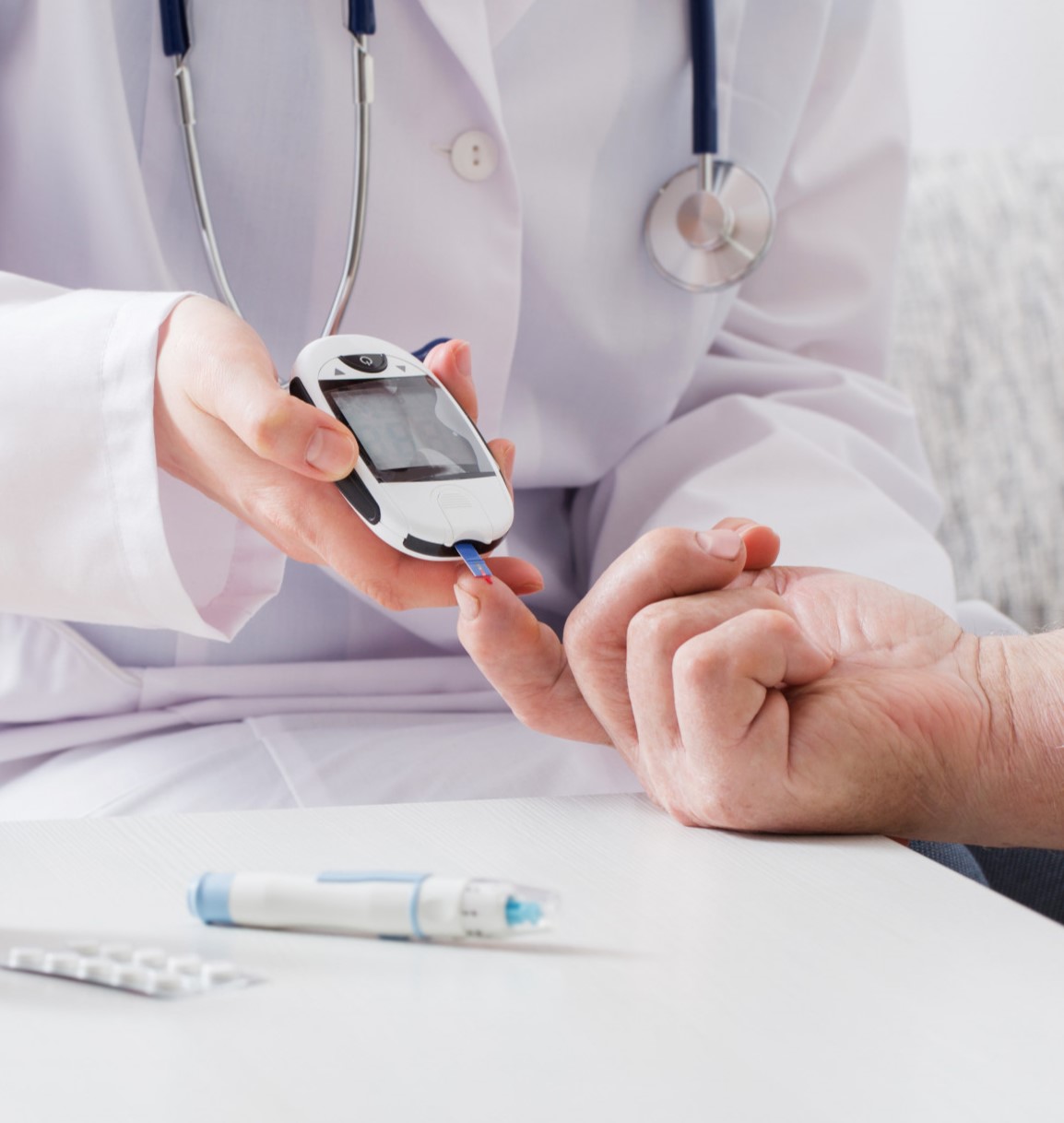Mediwell Clinic: Healthy Eating for Diabetes Prevention – The Power of Balanced Nutrition

Welcome to Mediwell Clinic, your dedicated partner in building a healthier tomorrow through smart choices today. In a world where diabetes is becoming increasingly common, we believe that prevention starts on your plate. Our program on how to prevent diabetes focuses on the transformative power of balanced nutrition, giving you practical tools, expert guidance, and sustainable habits to keep blood sugar stable and energy high. Located in the heart of Chengannur, Alappuzha, Mediwell Clinic combines medical expertise with everyday wisdom to help you take control of your health before diabetes takes control of you.
We empower individuals and families to make food their strongest ally in the fight against diabetes. Let’s explore how to prevent diabetes using the science of nutrition, one mindful bite at a time.
What is Diabetes and Its Risk Factors
Diabetes is a chronic condition where your body either doesn’t produce enough insulin or can’t use it effectively, leading to high blood sugar levels over time. There are three main types: Type 1, Type 2, and gestational diabetes. While Type 1 is largely genetic and unavoidable, Type 2—the most common form—can often be delayed or prevented through lifestyle changes.
Understanding risk factors is the first step in How to prevent diabetes. Here are the key contributors:
● Family History: If a parent or sibling has diabetes, your risk increases.
● Excess Weight: Especially around the abdomen, fat cells release chemicals that disrupt insulin function.
● Sedentary Lifestyle: Lack of physical activity reduces insulin sensitivity.
● Poor Diet: High intake of refined carbs, sugary drinks, and processed foods spikes blood sugar.
● Age: Risk rises after 45, though younger people are increasingly affected due to modern habits.
● High Blood Pressure & Cholesterol: These often travel with insulin resistance.
● Polycystic Ovary Syndrome (PCOS): Women with PCOS have higher diabetes risk.
● Sleep Issues: Less than 6 hours of sleep nightly impairs glucose metabolism.
The good news? Most of these risks are modifiable. At Mediwell Clinic, we assess your personal profile and create a roadmap showing exactly how to prevent based on your unique needs.

How Can I Prevent Diabetes Naturally
Prevention doesn’t require extreme measures—just consistent, natural habits. Here’s a proven, step-by-step approach to How to prevent diabetes without relying solely on medication:
1. Move Your Body Daily Aim for at least 150 minutes of moderate exercise per week—brisk walking, cycling, swimming, or yoga. Even 10-minute bursts count. Physical activity improves insulin sensitivity and helps maintain a healthy weight.
2. Prioritize Sleep: Get 7–9 hours of quality sleep nightly. Poor sleep disrupts hormones that regulate hunger and blood sugar.
3. Manage Stress: Chronic stress raises cortisol, which increases blood glucose. Practice deep breathing, meditation, or journaling for 5–10 minutes daily.
4. Good nutrition: good nutrition is a crucial for diabetes management because it helps control blood sugar levels, maintain a healthy weight, prevent complications, improve insulin sensitivity, boost energy and over all health .
5. Stay Hydrated: Drink at least 8 glasses of water daily. Dehydration can elevate blood sugar concentration.
6. Monitor Portions. Use smaller plates to control serving sizes. Overeating, even healthy foods, can strain insulin response.
7. Schedule Regular Check-ups, Annual blood tests (fasting glucose, HbA1c) catch prediabetes early—when reversal is easiest.
8. Build a Support Systems Involve family in meal planning and activity. Shared goals create accountability.
At Mediwell Clinic, we guide you through each step with compassion and clarity, making natural prevention feel achievable, not overwhelming.
The Role of Balanced Nutrition in Diabetes Prevention
Food is medicine, and when it comes to how to prevent diabetes, balanced nutrition is your most powerful tool. A diabetes-preventive plate isn’t about deprivation; it’s about harmony between carbohydrates, proteins, fats, and fiber.
The Perfect Plate Model
● 50% Non-Starchy Vegetables: cucumber, snake gourd, bitter gourd, ladies finger, plantain stem, plantain flower, green leafy vegetables Broccoli, spinach, cauliflower, bell peppers—low in calories, high in fiber and antioxidants.
● 25% Lean Protein: Chicken breast, fish, eggs, lentils, pulses, soy—helps maintain muscle and stabilizes blood sugar.
● 25% Complex Carbohydrates: Brown rice, quinoa, oats, wheat, millets, broken wheat release glucose slowly, preventing spikes.
Why Balance Matters
● Carbohydrates provide energy but raise blood sugar. Choosing whole grains over refined flour keeps levels steady.
● Protein slows digestion, reducing post-meal glucose surges.
● Healthy Fats (avocado, nuts, olive oil) improve insulin sensitivity.
● Fiber acts like a sponge, slowing sugar absorption and feeding gut bacteria that regulate metabolism.
Our dietitians at Mediwell Clinic design meal plans that reflect your cultural preferences while optimizing nutrition. We teach you to read labels, swap ingredients, and cook smarter, without losing flavor. Our Preventive Clinic in Ennakkad, Chengannur, offers cooking demos and tasting sessions so you can learn to love these diabetes-fighting stars.
What Foods Should Diabetics Avoid?
Just as important as what to eat is what to limit. These foods trigger rapid blood sugar spikes and promote insulin resistance:
| Age Group | Screening Recommendation |
|---|---|
| 20-39 | Monthly self-breast exam + clinical exam every 3 years |
| 40-49 | Mammogram every 1-2 years (based on risk) + annual clinical exam |
| 50+ | Annual mammogram + monthly self-exam |
| High Risk (family history, BRCA gene, etc.) | Start mammograms at 30 + MRI if needed |
● Sugary Drinks: Soda, energy drinks, sweetened tea/coffee—liquid sugar absorbs instantly.
● Refined Grains: White rice, white bread, maida-based snacks—strip away fiber, causing sharp glucose rises.
● Trans Fats: Found in margarine, packaged baked goods, and fried fast food—worsen inflammation.
● Processed Meats: Bacon, sausage, salami—high in sodium and preservatives linked to higher diabetes risk.
● High-Sugar Snacks: Candies, cookies, ice cream—obvious but often hidden in “low-fat” labeled products.
● Fruit Juices: Even 100% juice lacks fiber and concentrates natural sugars.
● Potato Chips & French Fries: High GI carbs + unhealthy fats = double trouble.
● Sweetened Breakfast Cereals: Marketed as healthy but loaded with added sugar.
Our Diabetes & Lifestyle Disease Management Treatment in Ennakkad, Chengannur, includes grocery tours to decode labels and find better alternatives.
Sample 7-Day Diabetes Prevention Meal Plan
Day 1
Breakfast: overnight oats with 1 hard boiled egg , tea without sugar
Lunch: vegetable salad, Sauted vegetables, curd, fish , brown rice
Snack: Greek yogurt with berries
Dinner: fish curry , vegetable thoran, chapathi
Day 2
Breakfast: millet upma with veggies , green peas curry, tea without sugar
Lunch: aviyal, curd, chicken , quinoa
Snack: Handful of almonds, tea without sugar
Dinner: wheat dosa, veg salad, chicken
Day 3
Breakfast: idli , sambar, 1 boiled egg tea without sugar
Lunch: vegetable thoran, buttermilk, fish curry , brown rice
Snack : sprouts salads , tea without sugar
Dinner : millet dosa , kadala curry , veg salad
Day 4
Breakfast: oats puttu , egg curry, cucumber salad
Lunch: Sauted vegetables , raita , fish curry , brown rice
Snack : Handful of mixed nuts and seeds
Dinner : Broken wheat upma with vegetbles , kadalacurry/ fish curry
Day 5
Breakfast: wheat dosa , egg curry, tea without sugar
Lunch: veg curry, vegetable salad, buttermilk , fish curry, brown rice
Snack : apple
Dinner : Ragi dosa , fish curry, vegetable salad
Day 6
Breakfast: wheat puttu , kadala curry , tea without sugar
Lunch: Vegetable salad, vegetable thoran (green leafy vegetables), chicken curry, quinoa
Snack: sprouts salad
Dinner: ragi dosa, vegetable curry , boiled egg
Day 7
Breakfast: millet upma with veggies , green peas curry, tea without sugar
Lunch : Aviyal, fish curry , buttermilk , brown rice
Snacks : chicken soup/ egg omelete with vegetables
Dinner: Chapathi, fish curry, Sauted vegetables
FAQ’S
1. How to reverse diabetes permanently
Reversing diabetes permanently require a multifaceted approach that incorporates lifestyle changes, dietary modifications, and professional guidelines. We guide you with structured plans.
2. Are fruits safe for people at risk of diabetes?
Yes, in moderation and with skin/fiber intact. Choose low-GI fruits like berries, apples, guava, passion fruit and pears. Avoid juice and overripe bananas. Pair with protein (e.g., apple + peanut butter, mixed fruit cup with nuts and seeds) to blunt sugar spikes.
3. How does fiber help in diabetes prevention?
Soluble fiber (oats, beans, apples, ) slows carbohydrate digestion, reducing blood sugar peaks. Insoluble fiber (veggies, whole grains) improves gut health and satiety, aiding weight control.
4. Is it necessary to consult a doctor for diabetes prevention?
Absolutely. Self-diagnosis misses prediabetes (HbA1c 5.7–6.4%). A doctor confirms risk, orders tests, and tailors advice, preventing guesswork and harm.
5. Does diabetes increase weight?
Uncontrolled diabetes can cause weight loss (Type 1) or gain (Type 2 due to insulin resistance and overeating from hunger. Proper management stabilizes weight.
6. What is the early signs of diabetes?
Increased thirst, increased hunger, frequent urination, fatigue, blurred vision , slow healing of cuts and wounds , swollen or red gums
7. What are good snacks options for diabetes?
Vegetable salads, fresh fruits ( in moderation), protein rich snacks like yogurt, nuts, seeds, eggs, sprouts etc
8. Can I eat rice with diabetes?
Yes , you can eat rice with diabetes, but choose brown or whole grain rice and control portion size
Contact Address
Location : Ennakkad - Ulunthy Rd, Ennakkad,
Kerala 689624
Phone : 04792323911, 8547566585, 8714031285
Email : [email protected]


